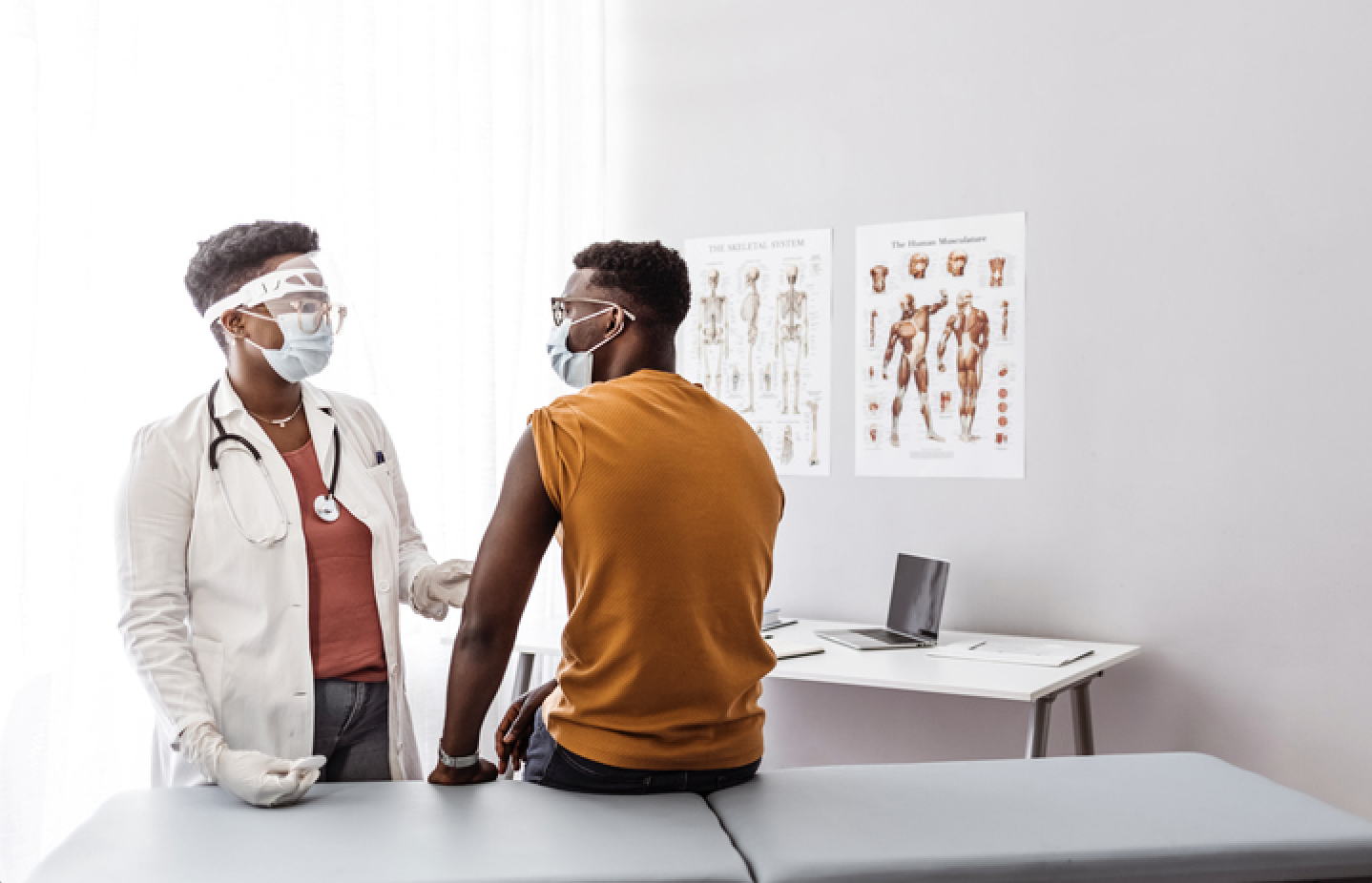Diversity in Diabetes Clinical Trials
By Andrew Briskin
 While African Americans, Hispanic/Latino Americans, and Indigenous people can be nearly twice as likely to have diabetes as white Americans, these populations are less likely to be involved in clinical trials investigating life-saving diabetes medications. One trial for a recently approved eye drug may set an example to change that.
While African Americans, Hispanic/Latino Americans, and Indigenous people can be nearly twice as likely to have diabetes as white Americans, these populations are less likely to be involved in clinical trials investigating life-saving diabetes medications. One trial for a recently approved eye drug may set an example to change that.
Non-white racial and ethnic groups make up about 40% of the US population. However, in 2020, only 25% of clinical trial participants were non-white for the 53 drugs that were approved by the FDA. And trials for diabetes medications are no exception to this trend.
Rates of diabetes are nearly double in Black, Hispanic, and Indigenous populations when compared to the white population. Similarly, the prevalence of diabetes-related complications is much higher within these underrepresented groups. This is one reason why efforts to improve clinical trial diversity are crucial, to bring diabetes research to those who could benefit from it most, and make sure that drugs and devices are studied for safety and efficacy in all populations.
To increase inclusion among participants in clinical trials, biotechnology company Genentech designed the Elevatum trial, which was specifically designed to make it easier for underrepresented populations to participate. Elevatum is a trial for a new eye medication called Vabysmo.
In January 2022, the FDA approved Vabysmo (faricimab) as a treatment for two of the leading causes of diabetes-related vision loss and blindness worldwide: diabetic macular edema (DME) and wet age-related macular degeneration (AMD).
“Elevatum is a one-year, phase 4, multicenter trial designed to study Vabysmo as a treatment for DME, specifically in underrepresented populations,” said Dr. Matthew Cunningham, principal investigator on the Elevatum trial and a retina specialist at Florida Retina Institute in Orlando. “This includes Black, Hispanic, Latin American, Native American, Native Alaskan, or Native Hawaiian/Pacific Islander populations.” Cunningham added that there has historically been a serious lack of diversity in clinical trials for eye treatments.
Researchers on the Elevatum trial are taking specific steps to make sure that people from these communities have the resources they need to be able to participate, which include:
-
Offering compensation for participation in the trial.
-
Providing meal stipends.
-
Providing transportation to and from the clinic, directly from their homes.
-
For visually-impaired participants, providing informed consent materials both orally and electronically.
The Elevatum trial is also enrolling participants using a wider range of eligibility based on starting A1C.
“A barrier for many trials is an A1C cutoff. This is a huge barrier to inclusion in my experience, because many people in these groups have an A1C above 10% [a common eligibility requirement for many diabetes trials],” said Cunningham. “To address this, Elevatum is allowing 20% of participants to have an A1C up to 12%. I truly believe that this will allow us to capture more patients who would have historically been excluded from a clinical trial.”
The impact of the Elevatum trial is significant, not just in researching the effectiveness of Vabysmo, but in addressing issues of trust towards the healthcare system and access to treatments.
“The hope of increasing clinical trial diversity is that just this trial could lead our patients to potentially sharing their experience with their loved ones and their communities to try and mitigate some of the fears around medical care,” said Cunningham. “We have to be cognizant that there may be trust issues within this group based on past trials [that have excluded or mistreated participants from these groups]. And we as a medical community still need to gain trust.”
“Elevatum is one way that I, as a healthcare provider, can gain access for my patient population to an innovative new treatment,” he added. “I think clinical trials allow us to get our patients access to certain resources they ordinarily wouldn’t have access to.”
Over the course of the year-long study, participants will receive monthly treatments for the first five months, followed by treatments every two months for the rest of the year. The study will enroll 120 participants from approximately 40 sites across the United States. “This is a first-of-its-kind study specifically looking at underrepresented populations and how they respond to an FDA-approved drug for DME,” said Cunningham.
In summary, the Elevatum trial may set an example for future clinical studies on how to improve clinical trial diversity, in turn leading to greater access to the highest standards of diabetes care for those with the condition. If you are an adult with either type 1 or type 2 diabetes and identify as Black, Hispanic/Latino American, Native American or other Pacific Islander, see if you are eligible to enroll in this clinical trial. More information about the Elevatum trial, eligibility requirements, and participating locations with contact information can be found here.
In addition, you can call 888-662-6728 or visit the Elevatum clinical trial page on Genentech’s website for more information.








